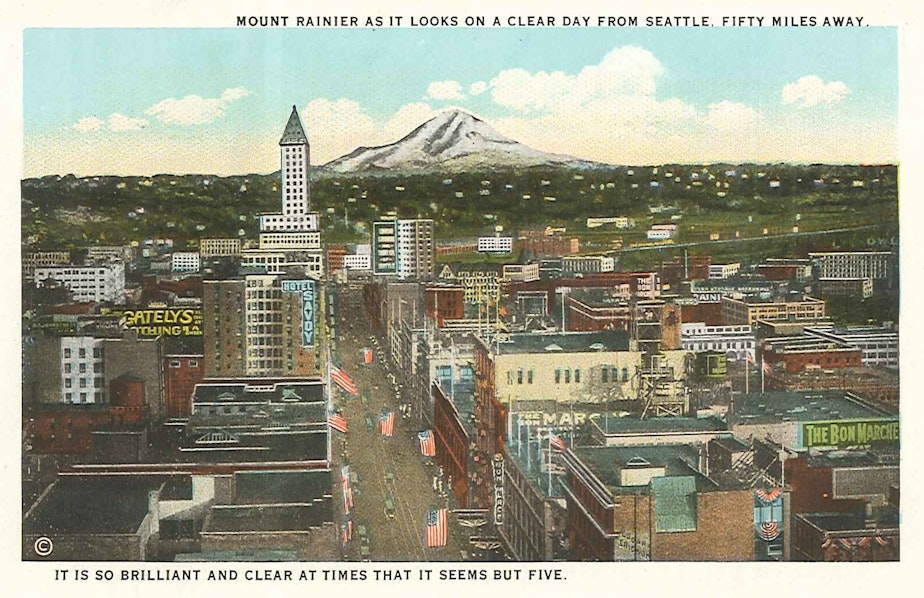Why do some locals say ‘Wershington’ instead of ‘Washington?’

We’re a quirky bunch out here in Washington state. We eat cream cheese on our hotdogs. The western part of the state freaks out when it snows. We don’t pay income tax.
And some of us consistently (and in some cases proudly) mispronounce the name of our state.
“Why do so many people born and raised in this region pronounce the name of the state as ‘Wershington?’” That question was submitted by Local Wonder listener Kathleen Braden.
Most long-time Washingtonians know at least one person who says “Wershington” — or maybe “Warshington” or “Worshington” if you’re listening closely. But why?
We asked Alicia Wassink, University of Washington linguistics expert, to help us make sense of it all.
Sponsored
“The phenomenon you’re asking about is what sociolinguists call r-insertion,” Wassink said by email. “R-insertion is present, but receding in Washington English.”
She noted that some people in the region also insert Rs into the words squash (squarsh) and wash (warsh). And if you’re looking around for someone to blame for this word butchery, you’d better aim your pointing finger east.
“This appears to be a retention from New England English, which was one of the dialects that forms our heritage,” Wassink said.
She noted that many early settlers to Seattle were from New England, which is why the Duwamish people used to call all white people “Bostons.”
But while the dialect that begot “warsh” and “squarsh" is fading fast in the Pacific Northwest, it still lingers in other parts of the country. You’ll hear similar examples of r-insertion in the Midwest, where some people like to “warsh” their dishes — and some might even say “garsh” instead of “gosh.”
Sponsored
Some natives of Washington, D.C., are known to say “Wershington,” too. And a few prominent politicians also favor r-insertion, including Sen. John McCain of Arizona.
After we published this story, we heard from readers who argued on how to properly mispronounce our state name.
Some swore it was "Worshington." An NPR editor weighed in and said that given the linguist's explanation, we might want to change our headline to "Warshington." We mulled it over and decided to stick with "Wershington," which sounds like whirrrshington, because that's how we hear it round these parts.
Sponsored
Our English-speaking friends will sometimes emphasize that pirate-y argh sound, however. One prominent characteristic of British English is the intrusive R, where an R is added on the end of a word that ends in a vowel sound if it’s followed by a word that begins with another vowel sound. One familiar example would be the Beatles singing “I sawr a film today, oh boy,” in “A Day in the Life.”
Wassink said our own form of r-insertion used to be more widespread, according to linguistic studies in the 1950s and '60s. But we’re still not off the hook when it comes to regional dialects. Contrary to what most Pacific Northwesterners think, locals do speak with a subtle accent.
Wassink told us in an earlier Local Wonder that the Northwestern accent can be found in how locals pronounce certain words. For example, "cot" and "caught" sound the same coming out of our mouths. And so do "don" and "dawn."
Don’t believe we have a particular way of talking? That’s OK. Maybe thinking we don’t have an accent is just one more quirky thing about the people of Washington. I mean ... Wershington.



